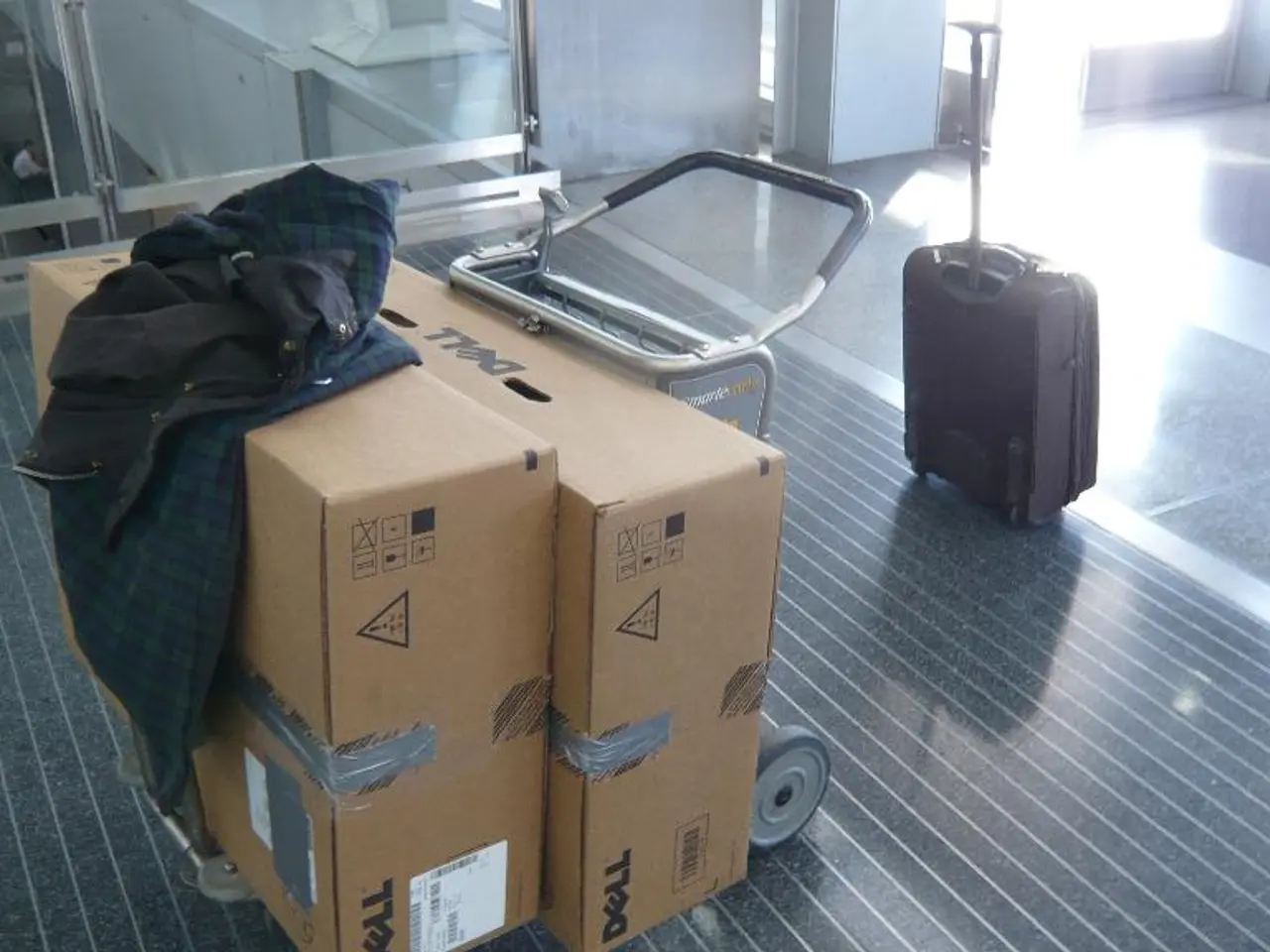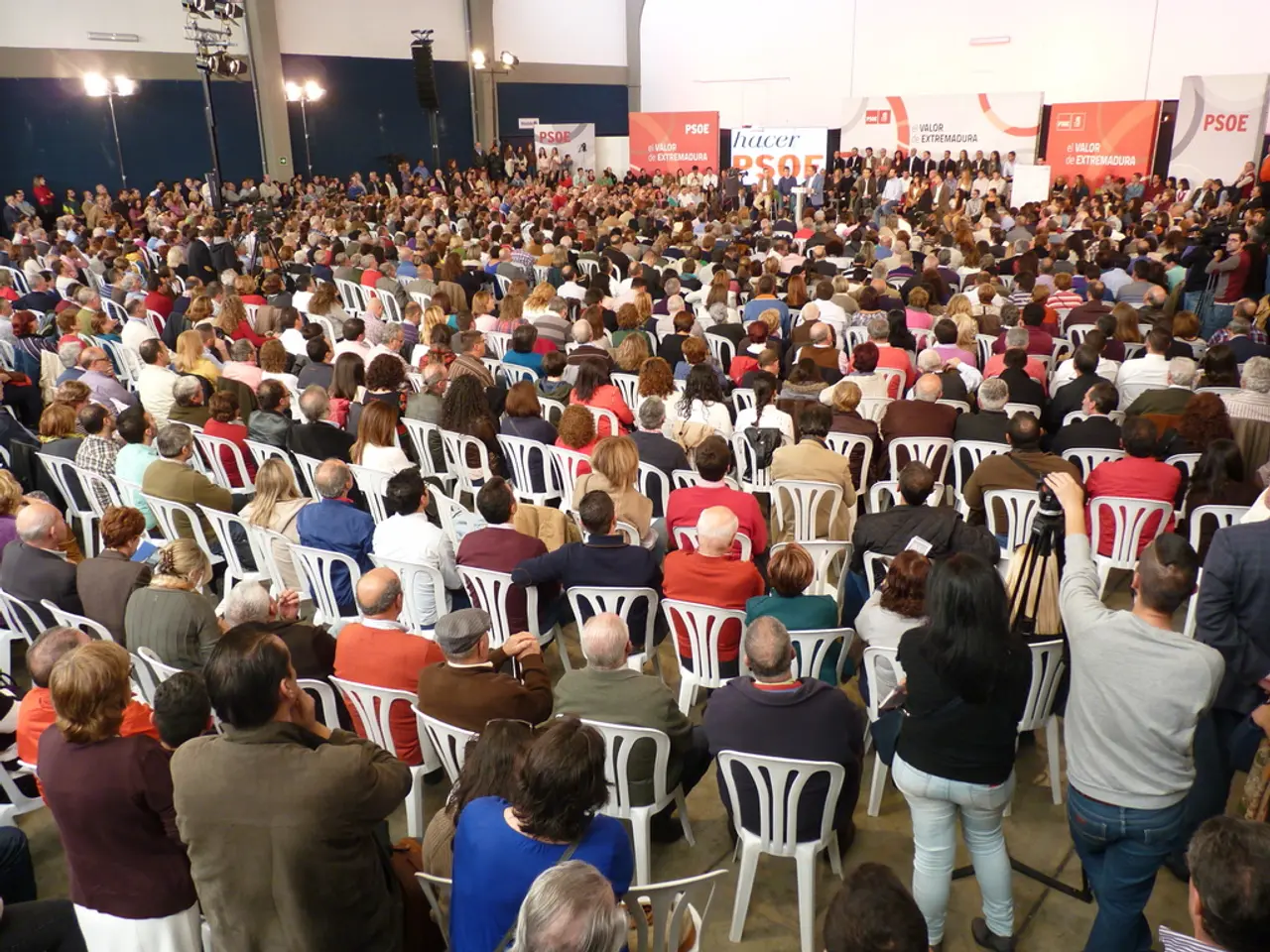EU to escalate customs dispute with Trump through subsequent actions
The European Union (EU) has unveiled a plan for counter-tariffs against the United States in response to President Trump's announcement of 30% tariffs on EU goods, set to take effect on August 1, 2025. The bloc's priority remains to seek a negotiated trade deal to avoid escalation, but it has prepared countermeasures that could be implemented if necessary.
The EU's counter-tariffs plan is a conditional strategy designed to protect European economic interests through potential reciprocal tariffs on a broad range of US goods. European Commission President Ursula von der Leyen emphasized the EU's commitment to dialogue and said they will use the time until August 1 to try to reach an agreement, while also preparing retaliatory actions if talks fail.
The EU had already launched public consultations earlier in 2025 concerning potential countermeasures on US imports in sectors including aircraft, automobiles, medical devices, IT equipment, and industrial machinery covering roughly €95 billion in US exports. On the EU export side, restrictions on scrap metals and chemicals worth €4.5 billion were also under consideration. These measures would come into play if negotiations with the US do not succeed.
The list of counter-tariffs includes imports from the USA worth 72 billion euros, and could be added to existing tariffs worth the same amount on US exports. If no agreement is reached, the EU is prepared to implement determined countermeasures. The counter-tariffs are on a list of industrial and agricultural products from the USA.
German leaders and EU trade ministers advocate a calm, pragmatic approach but acknowledge the serious economic impact of the tariffs on European businesses, especially in the automotive sector. Industry representatives warn that the tariffs could cause billions in financial burdens and rising costs for manufacturers and suppliers on both sides of the Atlantic.
It's worth noting that a trade war could be particularly harmful to the heavily export-oriented German economy, as nearly one in four jobs in Germany is dependent on exports, which have been shrinking since 2024 and are now facing additional pressure due to the trade dispute with the USA.
Despite the challenges, EU Trade Commissioner is continuing dialogue with the USA to reach a negotiating solution by August 1st. State Secretary Thomas Steffen represented the responsible CDU economic minister, Katherina Reiche, at the meeting. Sefcovic had previously expressed disappointment over Trump's announcement of new import tariffs of 30% on imports from the EU from August 1st, but believes that his American counterparts are also ready for further negotiations.
Two German industries will not be affected by Trump's tariffs, according to Sefcovic. However, the potential impact on both sides of the Atlantic could be significant if tariffs of 30% or more come into force. The situation remains fluid, with the EU prepared to respond decisively if no deal is reached before the August 1 deadline.
The European Union is using politics to protect its economic interests by preparing countermeasures, such as counter-tariffs on a wide variety of US goods, should negotiations with the United States fail. The EU's preparations for these countermeasures were already underway earlier in the year, targeting sectors like aircraft, automobiles, medical devices, IT equipment, and industrial machinery.






